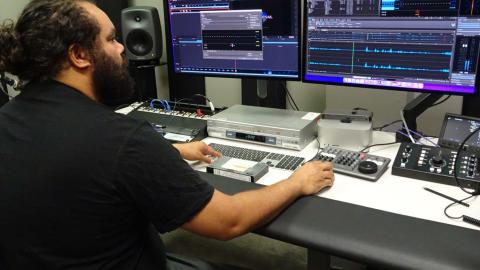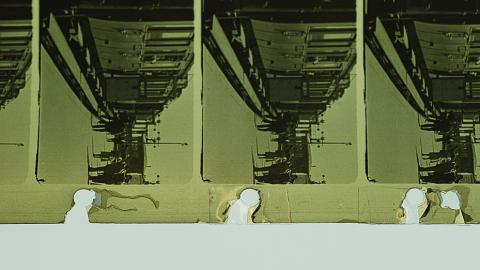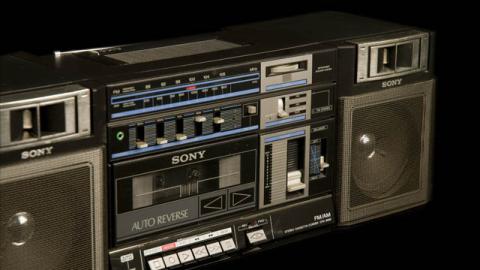
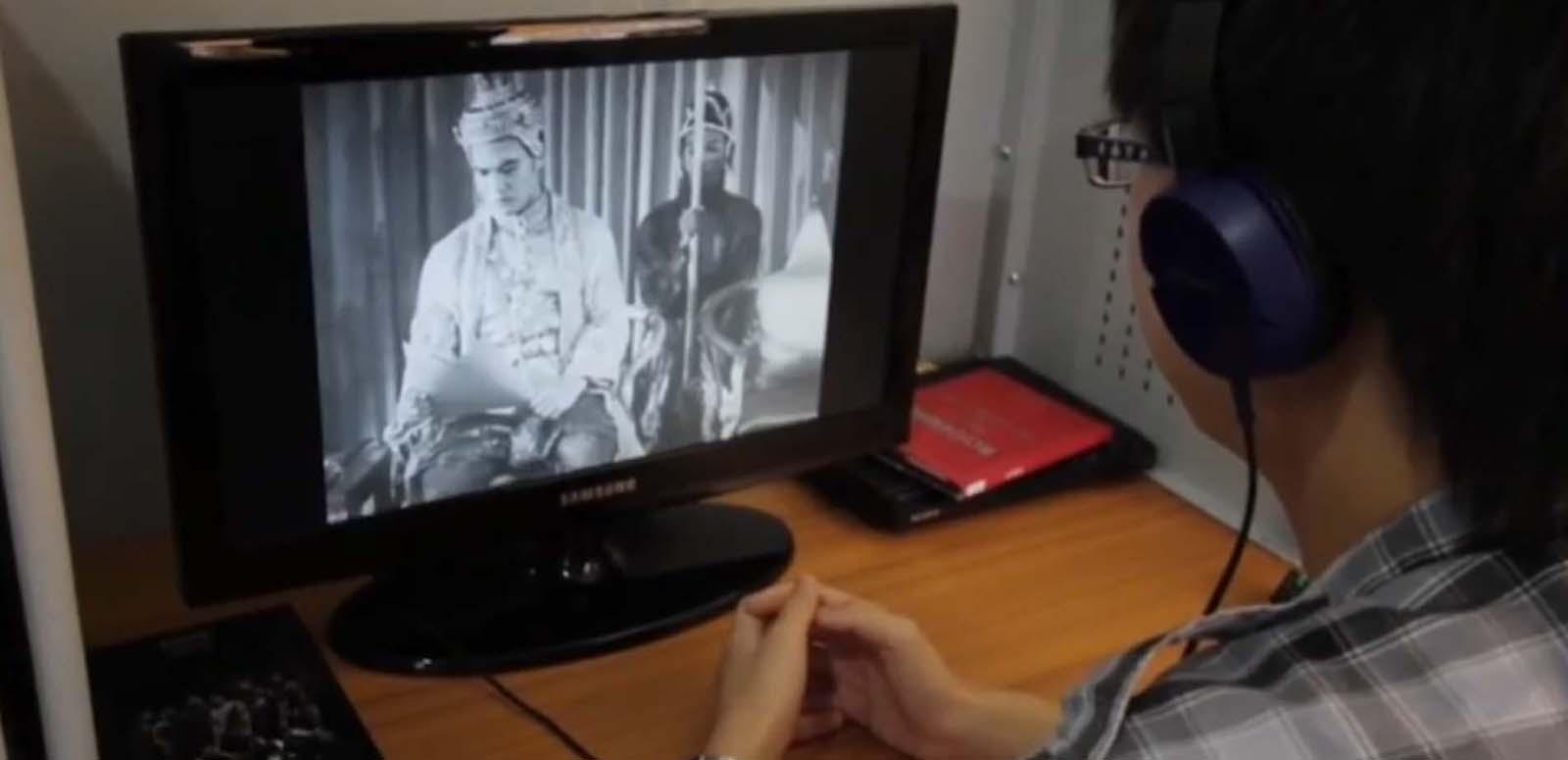
Thailand's fragile film heritage
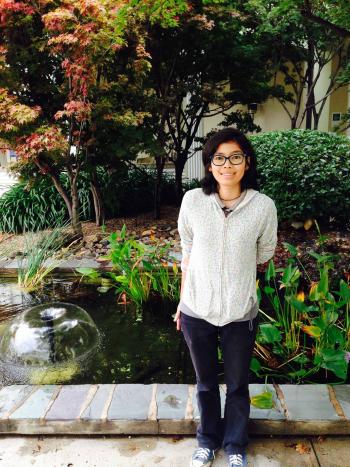
‘History, I think, is really important in Thailand. [But Thai] people are not interested in history’ says recent NFSA intern Kedsuda Jina, a Film Archivist at the Thai Film Archive. ‘Many nitrate films have been lost. There is a really small awareness of the importance of film preservation.’
Many decades’ worth of historic film have been lost in Thailand and the struggle to save what is left is carried by the Thai Film Archive. Prior to the establishment of the archive in 1984, there was no agency in charge of preserving a film legacy dating back to the first years of motion pictures.
Among the Thai Film Archive’s major challenges are battles with heat, humidity and wider public indifference to film as cultural heritage.
As Sam Ho, writing in the Journal of Film Preservation in 2001 says, ‘the heritage of film in Asia is particularly fragile … not so much because of snobbish rejection of a new and popular medium but simply due to indifference.’
Jina was first inspired to pursue a career in film archiving after seeing historical film footage of King Bhumibol Adulyade. Shortly after she applied to undertake work experience at the archive which was working on a special preservation project on the footage.
‘In my opinion, many people in Thailand don’t know how to preserve film and don’t think film is cultural heritage. Sometimes we [receive] films in bad condition because [the] donor has kept the film in a hot temperature or relatively high humidity – it’s not good for film.’

Still from the video 'เมื่อฟิล์มมาถึงหอภาพยนตร์ When film arrives at the Film Archive’ courtesy Film Archive Thailand
‘They’re thinking of movies as an entertainment medium. While digital technology is developing, people think that [storing] DVDs means [they are] already preserved … but they don’t know DVDs [have a shorter life-span]. If people know [about] film preservation, they can preserve film by keeping it in the right surroundings – it will [last] more than 100 years. The challenge is to try and get our ideas across and make people more concerned about film preservation.’
Jina’s daily work entails ‘registering films into three categories: News reels, Documentary and Feature films, as well as appraising films in order of priority. I inspect, repair, clean and employ film treatment which depends on its conditions and purpose and input all the data.’
Jina also helps organise the archive’s regular film screenings. In the early 1990s, the archive moved to a compound on the campus of Rajamangala University of Technology, approximately 45 minutes south-west of Bangkok’s Victory Monument. There it built the Thai Film Museum and Sri Salaya Theatre, which has regular movie screenings and special events.
An exchange of ideas
Jina spent the past month in the Canberra office working across the different sections of the NFSA. ‘My Assistant Director recognised the similarities between the collection of the NFSA and Thai Archive and arranged for me to spend a month learning the workflow of the NFSA to adapt to my Archive.’
‘I’ve learned many things here: in curatorial I was taught the processes of acquisition and management of the many items that come here. The collection information section is important because the detailed information cataloguing (accessioning) helps explain what the item is, how it should be stored and where it can be easily located.’
‘In the Motion Picture Laboratory I used machines that clean, scan and print film – I learned the work of each machine and what chemicals they use. In paper and stills group I learned how to clean, repair and scan things. In audio and video and telecine I learned how to do a soundtrack scan, clean disks and video tape, and digitisation processes. The most important is the vault at Mitchell, it’s very interesting area for keeping audiovisual work.’

Jina’s NFSA mentor, Mick Newnham, head of the Conservation, Research and Preparation team, has worked closely with the Thai Film Archive as part of his involvement with the South-East Asia and Pacific Audiovisual Archives Association (SEAPAVAA). Mick provides technical training in audiovisual media preservation throughout the South-East Asia Pacific.
‘The Thai Film Archive has an enormous amount of enthusiasm and willingness to try something new or different in their work in preserving and raising awareness of Thai cinema,’ says Mick. ‘One example is the film de-acidification process the archive uses. Based on the original work of the Vietnam Film Institute, the Thai Film Archive has developed a chamber that maximises acid diffusion (acid is generated as part of chemical decomposition of the film base, commonly known as “vinegar syndrome”) from the film base. The process is simple, low cost and very effective.’
From Bangkok to Canberra
Not everything was work for Jina during her time in Australia. Accommodation at the NFSA Residence building made it easy to attend regular screenings at Arc Cinema when she wasn’t busy cooking Thai food in the kitchen.
‘Canberra and Bangkok are very different. Canberra is very quiet and peaceful, and has good weather. Bangkok is very busy – it’s the opposite (from Canberra). After work in Bangkok, I play badminton and watch a movie (the Thai Film Archive screens a movie every day). Here I go for a walk to a park to read a book, or walk to the city to go sightseeing.
‘On weekends in Bangkok I like to go to a museum, gallery, an event – or watch a movie! Similar to Bangkok, Canberra has many events and beautiful places. I can take a bus to anywhere and know what time the bus is going to come! I love the bike lanes in Canberra but I would never ride a bike in Bangkok – it’s too dangerous!’
Watch ‘When film arrives at the Film Archive’ (in Thai, no subtitles):
The National Film and Sound Archive of Australia acknowledges Australia’s Aboriginal and Torres Strait Islander peoples as the Traditional Custodians of the land on which we work and live and gives respect to their Elders both past and present.
